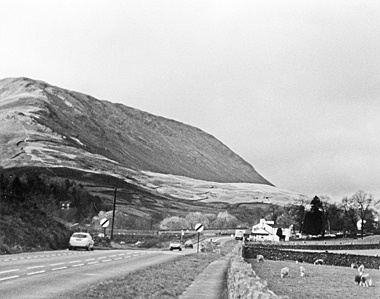All Nonfiction
- Bullying
- Books
- Academic
- Author Interviews
- Celebrity interviews
- College Articles
- College Essays
- Educator of the Year
- Heroes
- Interviews
- Memoir
- Personal Experience
- Sports
- Travel & Culture
All Opinions
- Bullying
- Current Events / Politics
- Discrimination
- Drugs / Alcohol / Smoking
- Entertainment / Celebrities
- Environment
- Love / Relationships
- Movies / Music / TV
- Pop Culture / Trends
- School / College
- Social Issues / Civics
- Spirituality / Religion
- Sports / Hobbies
All Hot Topics
- Bullying
- Community Service
- Environment
- Health
- Letters to the Editor
- Pride & Prejudice
- What Matters
- Back
Summer Guide
- Program Links
- Program Reviews
- Back
College Guide
- College Links
- College Reviews
- College Essays
- College Articles
- Back
Global Warming
The main reason we need to help our dying planet is Global Warming. Global warming, or climate change, is a subject that shows no sign of cooling down. Global warming is the increase in the average temperature of the Earth's near-surface air and oceans since the mid-20th century and its projected continuation. There are many things contributing to global warming. It happens when greenhouse gases (carbon dioxide, water vapor, nitrous oxide, and methane) trap heat and light from the sun in the earth’s atmosphere. This hurts many people, animals, and plants. Arctic ice is rapidly disappearing, and the region may have its first completely ice-free by 2040 or even earlier. Polar bears are already suffering from the sea-ice loss. Glaciers and mountain snows are rapidly melting—for example, Montana's Glacier National Park now has only 27 glaciers, versus 150 in 1910. In the Northern Hemisphere, thaws also come a week earlier in spring and freezes begin a week later. Coral reefs, which are highly sensitive to small changes in water temperature, suffered the worst bleaching ever recorded in 1998, with some areas seeing bleach rates of 70 percent. Experts expect these sorts of events to increase in frequency and intensity in the next 50 years as sea temperatures rise. A change in the amount of extreme weather events, such as wildfires and heat waves is also attributed in part to climate change by some experts. Many adults do many things to help stop global warming; kids can do just as much. Kids can’t do hard things like making a law, but we can do easier things like not watching as much TV. You can listen to your parents when they say, turn off your lights or go play outside. Listening to them and actually trying to help can help you, your environment, and the world.
There are many effects of global warming. The 5 deadliest are Spread of disease, Warmer waters and more hurricanes, Increased probability and intensity of droughts and heat waves, Economic consequences, and Polar ice caps melting. The 5th deadliest effect is the spread of disease. As northern countries warm, disease carrying insects migrate north, bringing plague and disease with them. Indeed some scientists believe that in some countries thanks to global warming, malaria has not been fully eradicated. The 4theffect is warmer waters increases amount of hurricanes. As the temperature of oceans rises, so will the probability of more frequent and stronger hurricanes. We saw in this in 2004 and 2005. The 3rd effect is the increased probability and intensity of droughts and heat waves. Some areas of Earth will become wetter due to global warming; others will suffer serious droughts and heat waves. The 2nd effect is economic consequences. Most of the effects of global warming won’t be good. These effects spell one thing for the countries of the world: economic consequences. Hurricanes cause billions of dollars in damage and diseases cost money to treat. The most deadly effect is the polar ice caps melting. The ice cap melting is a four-level danger.
The first step is the raising sea levels. Right now there are 5,773,000 cubic miles of water in ice caps and permanent snow. According to the National snow and ice data center, if all glaciers melted today the seas would raise about 230 feet. Luckily this will not happen all at once. Second, melting ice caps will throw the global ecosystem out of proportion. The ice caps are made up of fresh water and when they melt they will go into the salt water and make it less salty. Third, temperature rises and changing landscapes in the artic will endanger several types of animals. Only a few will survive. Fourth, global warming could snowball with the snow caps gone. Ice caps reflect sunlight which helps cool down Earth. If the ice caps melt the only reflector is the ocean. Darker colors absorb sunlight, further warming the earth. It is important to help save the planet because if the earth dies so will the people and we do not want that to happen. Less people will die from preventable diseases and the water will not drown people. The next time you get into your car to go a few blocks and think about how much CO2 you are realizing into the air.

Similar Articles
JOIN THE DISCUSSION
This article has 0 comments.
